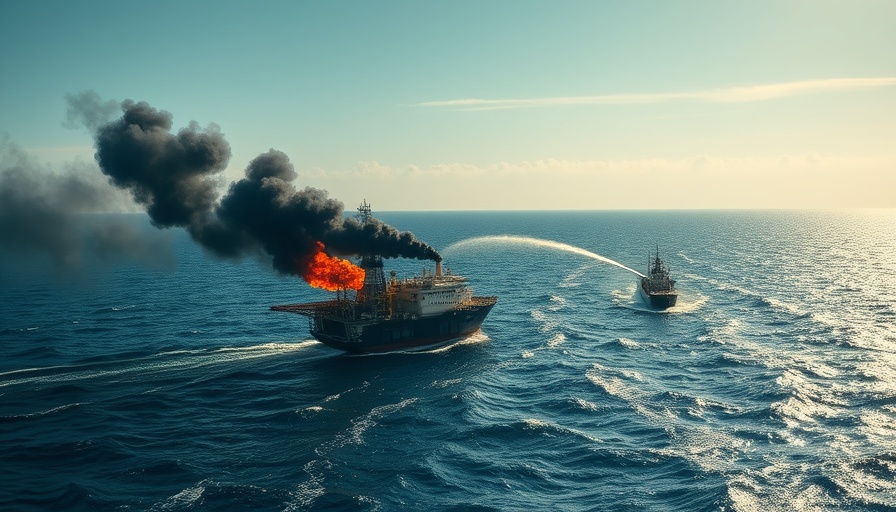
A Watershed Moment: The Renaming of the Gulf
In a controversial move, President Donald Trump has officially renamed the Gulf of Mexico to the "Gulf of America." This change, which has sparked a corporate linguistic shift among major companies, raises questions about loyalty, identity, and the meanings we associate with geographical names. Corporate giants such as Chevron, Hess, and ConocoPhillips are navigating through this renamed landscape, with each company taking a markedly different approach.
The Corporate Divide: Embracing or Ignoring Change
Since the announcement in January, companies have split in their responses. ConocoPhillips, for instance, remains committed to its long-standing reference, continuing to call it the Gulf of Mexico. On the other hand, Chevron has wholeheartedly adopted the new nomenclature, showcasing its alignment with the current administration in both local and global markets. Hess Corp. has chosen a middle path by mentioning both names in its annual report, reflecting a cautious approach to change while acknowledging the new terminology.
Shifting Perspectives: Why Names Matter
Understanding the implications behind these name changes goes beyond mere semantics. Chris Tucker, a consultant in strategic communications, emphasizes that corporate messaging must adapt to survive political landscapes. Companies face pressure to align their language with that of the government, particularly if they have significant business interests in the region. Failure to adapt can be viewed as a direct challenge to the existing administration, posing potential risks to their operations.
The Quiet Ones: Companies Choosing Silence
Interestingly, some corporations seem to be sidestepping this naming debate altogether. Notably, Exxon Mobil has opted to simplify its references to "the Gulf," avoiding any explicit mention of the new name. Meanwhile, Southwest Airlines did not even mention the body of water in its latest report, raising eyebrows about its regional ties and operational integrity. This reticence highlights the fluidity of corporate identity and suggests that for some, political neutrality may be a safer route.
Implications Beyond the Corporate World
The impact of this naming controversy reverberates beyond the boardrooms and into the cultural fabric of the region. The Gulf of Mexico has been a critical fishing ground and an economic lifeline for many communities. As the nomenclatural debate unfolds, the fishing industry, alongside environmental advocates, may feel the tension between identity and practicality. How effects on fish populations and ecological health are viewed change dramatically depending on the name used, creating different narratives around this vital ecosystem.
Looking Ahead: Greater Implications for U.S.-Mexico Relations
This renaming saga also touches on larger themes of U.S.-Mexico relations. As discussions around water rights, fishing territories, and environmental stewardship surface, the renaming of the Gulf could affect perceptions in international dialogues. It serves as a reminder that names are not just labels; they carry weight in diplomatic relations as stakeholders navigate through waters that are both literally and figuratively deep.
Recognizing the Complexity Ahead
Ultimately, the corporate reactions to the renaming reflect broader tensions in American society. The adaptations in language are indicative of strategic decisions made by businesses under political pressures, with implications that vary widely across sectors. As stakeholders consider how to respond, they must navigate a complex landscape intertwined with American and Mexican cultural dynamics.
As you observe this naming debate play out, consider how names and language reflect our identities and relationships with places, communities, and international diplomacy. This evolving narrative will be pivotal as we move forward.
In light of these pivotal changes, staying informed is crucial. Follow the ongoing discourse surrounding the Gulf of America, its environmental implications, and how companies are adapting to ensure stakeholder trust and relevance as these events unfold.
 Add Row
Add Row  Add
Add 




 Add Row
Add Row  Add
Add 

Write A Comment